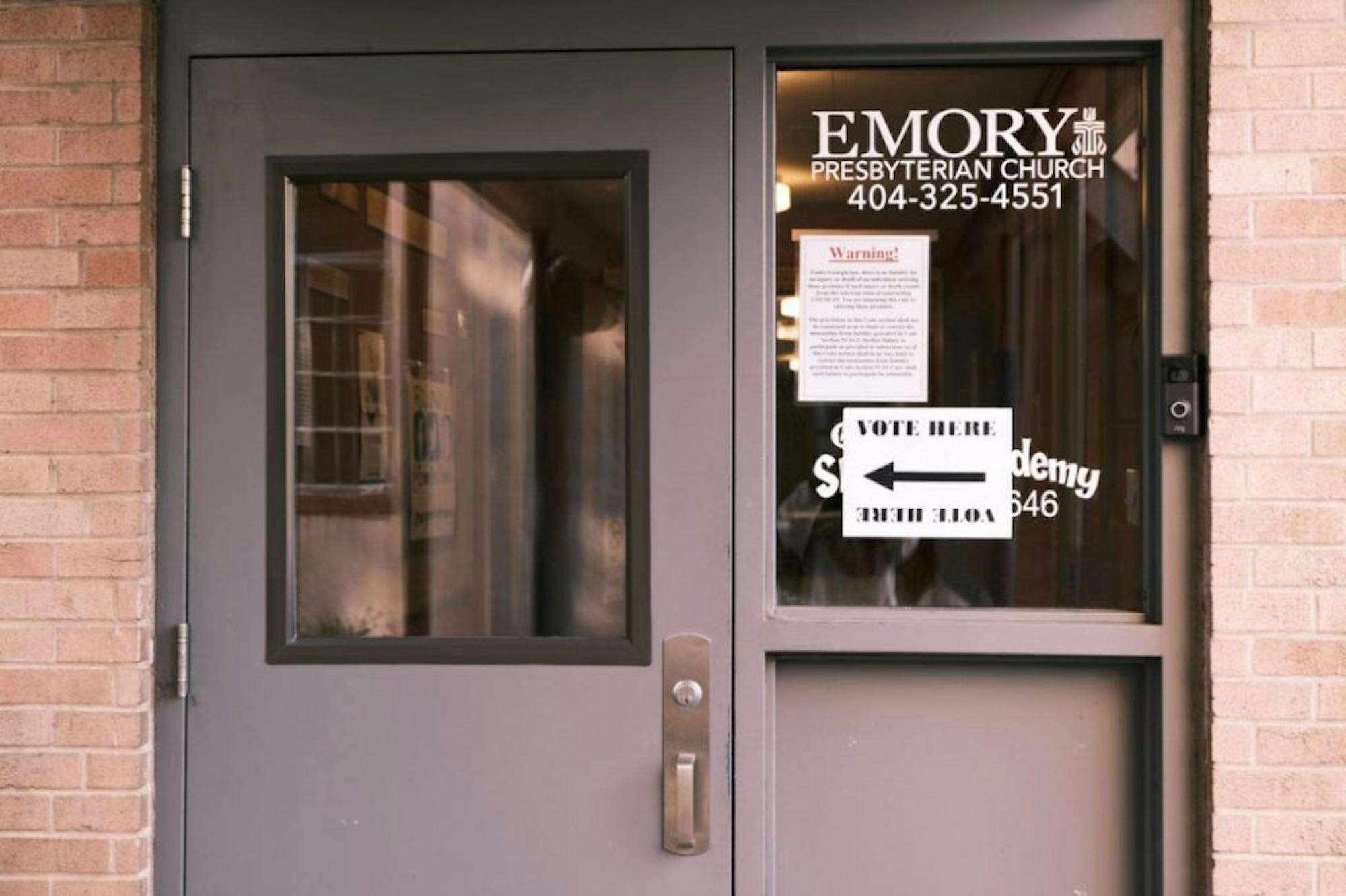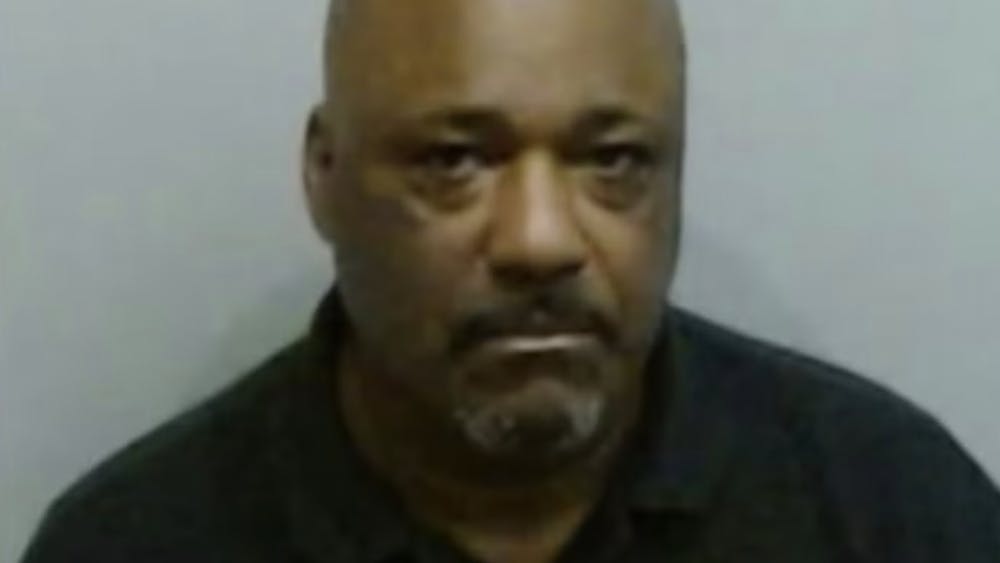Atlanta City Council President Felicia Moore led Tuesday’s Atlanta mayoral election as of 1:30 a.m. on Wednesday with 39,202 (41%) of 95,317 votes, according to data from The Atlanta Journal-Constitution collected from Fulton and DeKalb Counties. The Associated Press called around 11 p.m. that Moore had won one of two spots in the runoff election slated to occur on Nov. 30.
The second position in that runoff was too close to call as of 1:30 a.m., with 100% of ballots reported in Fulton and DeKalb. Councilman Andre Dickens had the second most votes with 22,153 (23%) and former Atlanta Mayor Kasim Reed stood in third place with 21,541 votes (22.5%).
The current margin between the two is just over 600 votes, a 0.6% difference that would not yield a runoff. Votes are not yet official.
The mayoral race garnered national attention after Mayor Keisha Lance Bottoms announced she would not run for re-election on May 7, the first mayor not to seek a second term since World War II. Following this announcement, 14 candidates launched their campaigns.
“This has been a campaign of the heart,” Moore told WSB-TV at a watch-party for her supporters. “These people have put their heart and soul and time and money and prayers towards a new Atlanta, an Atlanta where everyone’s gonna feel safe, an Atlanta where when you spend your money for your taxes and your services, you’re gonna get them.”
Dickens declared victory for the second runoff position, which was not yet called by outlets.
Reed, meanwhile, indicated he has not given up. AJC reporter Patricia Murphy tweeted that the former mayor told his supporters, “I said it would be worth it. I didn’t say it would be easy.”
The election for Atlanta City Council president was another major local race without an incumbent after Moore announced her candidacy. That race is also poised to head towards a runoff between Emory alum Doug Shipman (95C), who led the race at 1:30 a.m. with 27,562 votes (31%), and Councilwoman Natalyn Mosby Achibong, who polled the second-highest with 24,923 votes (28%). Courtney English was in third with 22,400 votes (25%).
Alex Wan dominated the City Council District 6 race, which represents Emory properties, accumulating 72% of votes
Emory student Royce Carter Mann (24C), who ran for Atlanta School Board District 7 At Large, polled fourth out of five candidates at 1:30 a.m. with 8,726 of 70,091 votes (12%).
Emory University students were eligible to vote in Atlanta municipal elections for the first time this year after the City Council annexed the school and surrounding properties into city limits in 2018, shortly after the 2017 mayoral election. Many Emory students took the newfound opportunity to cast their vote in Tuesday’s election at the Emory Presbyterian Church polling station.
When the polls opened at 7 a.m., there was no line at the church.
Sofia Damer-Salas (24C) said she felt compelled to vote because she felt it was her civic duty, saying, “I just felt like if I had the opportunity I should exercise my right to vote. It’s your job as someone who lives here.”

Damer-Salas said her time in Chicago influenced the importance of local voting for her, particularly during a mayoral election.
“Mayoral decisions made a huge impact, especially when it came to education,” Damer-Salas said. ”Those are the ones that affect people the most directly.”
Several students echoed the sentiment that the mayoral race was the main reason why they decided to vote in this election.
“There’s not an incumbent running again so I thought it would be an important one,” Ruby Grodin (25C) said.
Stella Fox (25C), a first-time voter from Massachusetts, said that she felt like it was important for her to cast her vote in Georgia.
“I always wanted to vote in Georgia versus Massachusetts because I feel like it makes more of a difference when I vote, especially if Massachusetts is always blue,” Fox said.
Students like Iris Chen (22C) stressed the importance of voting in local elections because of the issues at stake in those races, saying, “They impact Emory and the city that we’re in.”
In particular, Chen said that she believed the mayoral race was important because of how the mayor’s office influences police policy. Over the last several months, the city increased the portion of the city budget dedicated towards the Atlanta Police Department and passed a proposal to lease land to the Atlanta Police Foundation for a new police and fire training facility
Chen also cited the importance of council decisions in improving road infrastructure and the value of school board elections.
“There’s a lot of education inequity in the city of Atlanta,” Chen said. “Voting in the school board is what changes that, or at least hopes to.”
Ethan Feldman (22C), who worked on Moore’s campaign doing research and election data visualization, said he knew many students were interested in city policing policies based on protests in summer 2020 and that this election is “basically a referendum on that [policing].”
Voter turnout for young people is consistently low, with the 18-29 year old demographic only breaking a 50% turnout rate in 2020. While Feldman said that he is “pretty skeptical” about young voter turnout increasing, he said he believes it is important to connect the issues of each election to Emory students.
Other students got involved by leading efforts to encourage young voters to cast a ballot in the local elections.
Young Democrats of Emory Secretary Ash Meenakumari Shankar (23C) helped organize a ballot breakdown posted on social media and visits from various candidates. He also did canvassing work, talking to voters and putting up flyers for the Dekalb County Democrats.
“The reason I got involved was because of how important local races are, people often don’t turn out for them,” Shankar said.
Shankar said that “getting people aware that there was an election happening” was essential.
“It was really important to me that we bring awareness about how critical these small decisions that are being made in local government are, just as much as the ones that are happening at the national level,” Shankar said. “We have the tools to be able to change the city of Atlanta in so many ways.”




